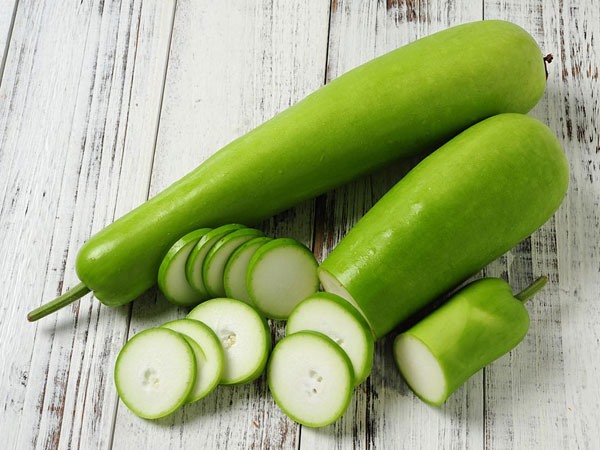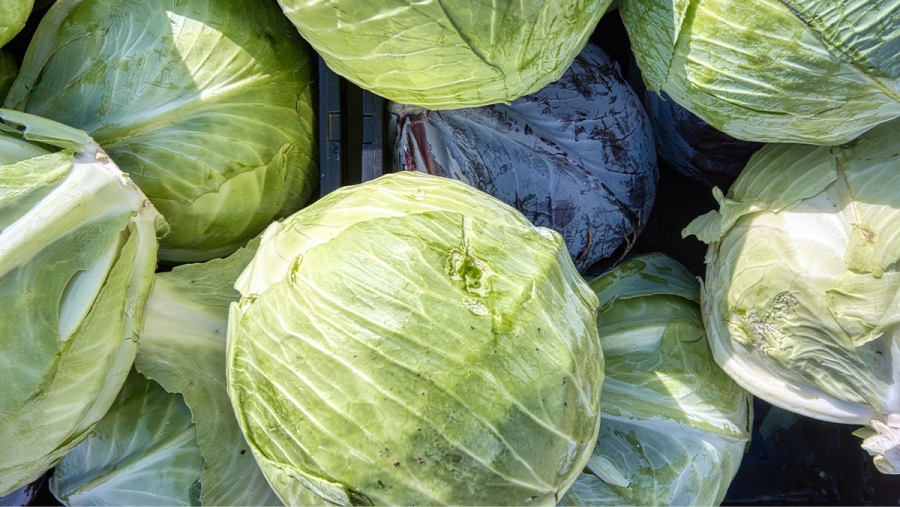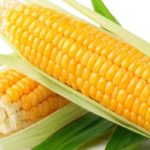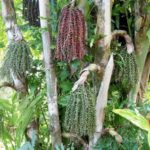Bottle Gourd
The composition of bottle gourd is 94% water. This fruit is low in calories and rich in vitamin A, potassium, magnesium, and fiber.
In traditional medicine, bottle gourd has a mild taste, cooling properties (some sources claim it to be sweet and cold), and is known for its heat-relieving, detoxifying, diuretic, and laxative effects. However, people with cold constitutions or weak digestion should limit their consumption as it may cause abdominal discomfort. Bottle gourd can be cooked by steaming, making soup, or stuffed with meat.

Mung Bean Sprouts
In traditional medicine, mung bean sprouts are considered cooling, mildly sweet, and slightly bitter. They are used to clear heat, reduce thirst, promote diuresis, aid digestion, and relieve constipation. Mung bean sprouts are rich in nutrients such as fiber, vitamin C, calories, and healthy fats. They have a laxative effect and regular consumption can also promote skin health and treat phlegm.
Mung bean sprouts can be eaten raw or cooked, such as in soup, boiled, stir-fried, or in salads. It is recommended to choose fresh bean sprouts and avoid ones that are slimy, as the moist environment of bean sprouts can be a breeding ground for bacteria such as Salmonella or E.coli, which can cause symptoms such as abdominal pain, diarrhea, or vomiting.
When preparing mung bean sprouts, soak them in diluted salt water to remove impurities and avoid stir-frying them with pork liver as the copper content in the liver can reduce the vitamin C content in mung bean sprouts. For young children, the elderly, or those recovering from illness, it is recommended to consume steamed mung bean sprouts.
Radish
Both red radish and white radish can be eaten raw or cooked. In traditional medicine, radish is considered sweet, cooling, slightly spicy, and is believed to have detoxifying, heat-relieving, and expectorant properties. These types of radishes are rich in vitamin C, which promotes skin health, aids digestion, lowers blood pressure, and promotes bowel movement.

Bok Choy
Bok choy is considered cooling, mildly sweet, with a slight bitterness, and is believed to have cooling properties, detoxifying effects, promote diuresis, and provide a rich source of fiber, as well as abundant vitamin A and C. With bok choy, it can be steamed, boiled, or stewed, but it is advisable to buy the ones that are guaranteed to be safe.
Cabbage
Regular consumption of cabbage helps the body eliminate toxins and cleanse the digestive system. However, it is important to note that people with thyroid problems should seek advice from experts when using it.

Broccoli
Broccoli not only contains a high amount of vitamins C, A, K, and B9 (Folate), but it also contains minerals such as potassium, phosphorus, iron, and selenium. In addition, broccoli is rich in fiber, which aids in digestion, and is beneficial for cardiovascular health, improves anemia, reduces cholesterol, and lowers blood sugar levels.
With broccoli, you can grill, stir-fry, boil, steam, or simmer it, but boiling or steaming is better as these cooking methods help preserve its nutritional value.
In addition, you should also supplement your diet with fruits such as avocado, apple, banana, papaya, and drink enough water to support bowel movements for easy digestion. If you have underlying conditions or prolonged constipation accompanied by symptoms such as bloody stools, it is advisable to visit a hospital for examination and treatment.





































